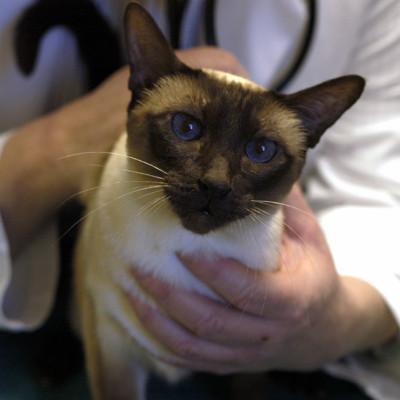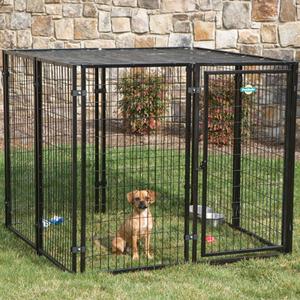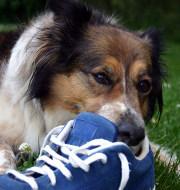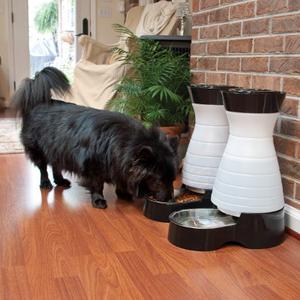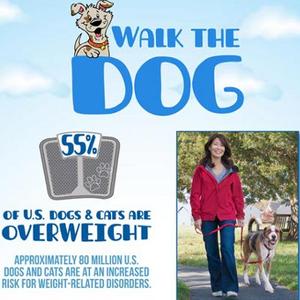Keep your best friend healthy and happy with these valuable health tips.
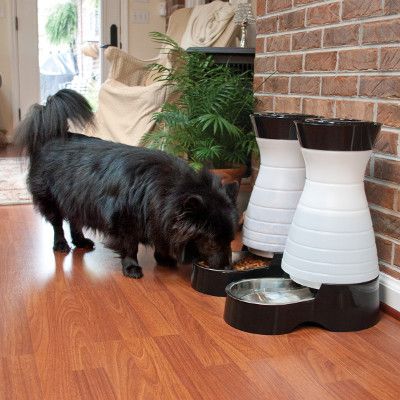 Food
Food
The right pet food is a top priority for both short and long-term health. Some foods are formulated to meet overall nutritional needs and others are designed to combat specific health conditions. An athletic dog, for example, may thrive on a certain food while a senior pet with arthritis could fare better by eating a different brand. Talk with your veterinarian about what type of food is right for your pet and choose the best food you can reasonably afford.
Pets should eat at regular intervals such as morning and evening, or food can be available all the time. They like routine so sticking to a schedule is important. The amount of food required depends on the animal. More active animals or young, growing pets will need more food than older or less active ones.
Water
Pets need access to clean, drinkable water at all times. Check outdoor water supplies frequently in the winter to be sure they haven’t frozen. Wash both food and water bowls regularly to reduce bacterial contamination and growth.
 Shelter
Shelter
A pet that spends any time outside needs a shelter that protects her from the sun, rain, snow, storms, strong winds and excessive heat or cold. I f the temperature is below 40 degrees, an insulated shelter is especially important. If the temperature is higher than 90 degrees , the shelter must be well ventilated to prevent dangerous heat build-up.
Sanitation
To provide a clean living area, remove waste materials like feces and urine from a pet’s environment. Waste removal is as easy as regularly cleaning the litter box for indoor cats or picking up and disposing of poop for dogs and outdoor cats. In addition, uneaten food shouldn’t be left out for long periods since it can spoil or attract unwanted pests.
External Parasites
Flea and tick bites can cause and spread serious diseases to pets and people. Fortunately, there are many good options available to keep cats and dogs free of external parasites. The most effective prevention is a monthly topical treatment available from veterinarians and some pet supply stores.
A pet with fleas and ticks may have thin hair and itchiness. Heavy infestations of fleas and ticks can lead to severe itching and chewing, inflamed skin or even open, bleeding sores and skin infections. Over time, fleas can drink enough of a pet’s blood to cause anemia and in severe cases be life threatening. A heavily infested pet needs treatment by a veterinarian.
Internal Parasites
Pets can suffer from intestinal worms such as hookworms, roundworms, tapeworms or whipworms. They’re easily spread between pets through contact with the feces of an infected animal and are not always visible in the fecal material.
Infestation with roundworms can cause diarrhea, vomiting and a potbelly look in puppies. Hookworms and whipworms can cause severe anemia. Some intestinal worms can spread to people, especially children.
Not all worms are treatable with over-the-counter deworming medicine. The best prevention is an annual fecal exam by a veterinarian. The exam should be part of a pet’s yearly check-up.
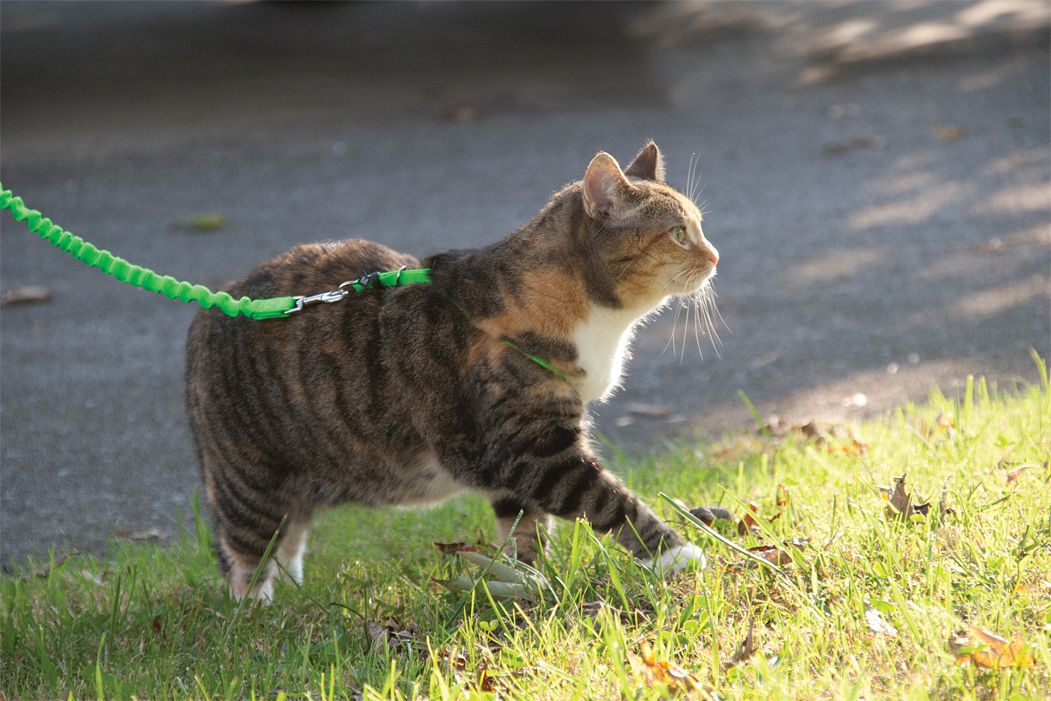 Weight Management
Weight Management
Extremely underweight pets are more susceptible to many illnesses. Very overweight pets are more likely to develop arthritis, pressure sores, breathing difficulties, liver disease and diabetes. For most breeds of dogs and cats, individual ribs in the ribcage should not be visible, but you should be able to feel the ribs when you pet the animal.
The most frequent cause of a pet being overweight or underweight is the pet’s owner. Many owners aren’t careful enough about the type or amount of food their animals get. Instead of guessing at the amount of food to pour in the bowl, use a measuring cup and keep it in the food bag. Treats are an ideal way to reward pets for good behavior, but those calories add up, too. A treat the size of a pea can be just as motivating as a large biscuit.
Grooming
Proper grooming is important for good health. Bathing, brushing the coat, keeping toenails trimmed, cleaning ears and brushing teeth all contribute to wellness.
- The coats of medium and longhaired pet breeds can become matted if not brushed properly or often enough. Matted hair traps dirt, moisture and parasites, allowing infection and even maggots to set up on the skin.
- Untrimmed toenails can make walking painful for a pet. Nails can grow so long that the toes curl in abnormal directions. Unclipped nails can even grow back around and into the toe itself.
- If ears are not kept clean, they can become infected and cause extreme pain and itching for a pet.
- Plaque and tartar build-up can lead to painful and smelly dental infections. If the infection enters the pet’s gums, it goes into the blood and from there travels to organs in the body. Research shows that a lack of dental care can lead to kidney failure, liver failure, heart failure, stroke, pneumonia and a host of other diseases.
- Collars, harnesses, bandanas, and other accessories worn for long periods need to fit appropriately. If they’re too tight, they can cut into a pet’s skin and cause a great deal of pain.
Physical Safety
A pet needs to be protected from both human and environmental threats. A physical fence keeps an animal at home and provides protection from roaming pets and wild animals. Pets should be on a leash when not on the owner’s property.
Exercise
Exercise is essential to a pet ’s mental and physical well-being. Lack of appropriate activity can lead to behavioral problems such as fear, aggression, destructive behaviors or self-mutilation. Constant physical restraint such as tethering by a chain, cable, rope, or continuous confinement in a pen is not proper care. In fact, continued containment is completely against an animal’s need for mental stimulation and physical exercise.
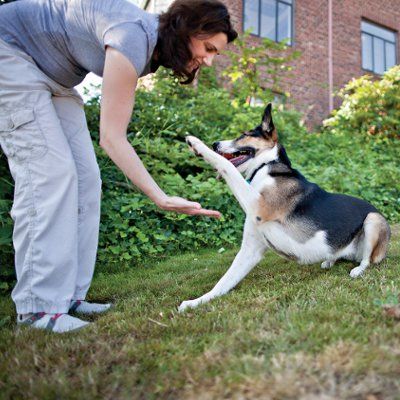 Training
Training
Pets that get basic obedience training make the best companions. They learn most successfully with positive reinforcement. Abusive training behavior such as hitting or throwing a pet is never acceptable. Ask your veterinarian about suitable training methods or training resources.
Affection & Positive Attention
Dogs and cats are social creatures by nature and need companionship and regular interaction with others. It is unnatural and unhealthy for them to always be alone or only be noticed when their food and water are replenished. Pets that receive positive attention and are treated kindly by their owners will be happier and healthier.
When you provide your pet with routine medical care, including annual check-ups, you’re doing everything you can to give your companion a long and healthy life.

